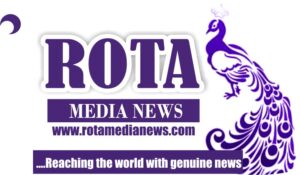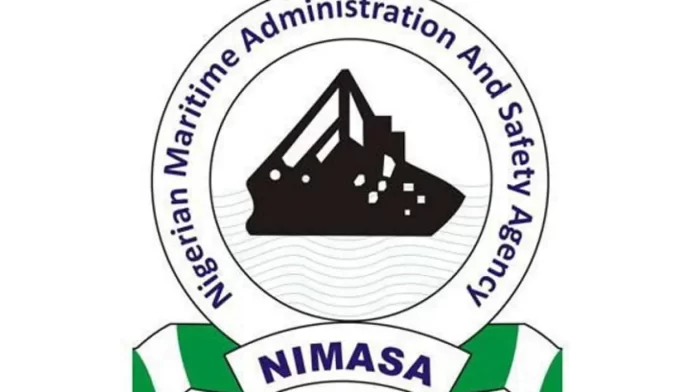Dosunmu, in a statement in Lagos, was reacting to the call by the Presidential Policy Advisory Group to merge the agency with the Nigeria Customs Service and Federal Inland Revenue Service.
According to Dosunmu, this is a very serious misconception and dangerous for the future of the shipping/ maritime industry in Nigeria.
“My attention has been drawn to speculation purported to have emanated from the Presidential Policy Advisory Group erroneously classifying NIMASA as a revenue-generating Agency, thereby proposing a merger of NIMASA, Customs, and FIRS.
“NIMASA was created in 2007 following the merger of National Maritime Authority (NMA) and Joint Maritime Labour Industrial Council (JOMALIC), deriving its powers from the Merchant Shipping Act, 2007, NIMASA Act, 2007 and Coastal and Inland Shipping (cabotage) Act, 2003.
“The Agency is a Maritime Safety Administration responsible for regulating shipping activities in Nigeria, with a view to achieving safer shipping and cleaner oceans as mandated by the International Maritime Organisation (IMO) through its various Conventions and Protocols.
“The enabling acts give NIMASA statutory powers as specified by International Conventions and protocols for the enthronement of global best practices in ensuring the safety of Navigation and prevention/control of marine pollution in the shipping industry as regulated by the International Maritime Organisation (IMO), in which Nigeria is a contracting member state,” he said.
Dosunmu said that the IMO had 167 Maritime Nations as members including Nigeria due to our vast maritime coastline and issue conventions and protocols, such Conventions as the Marine Pollution Prevention (MARPOL), and others.
He added that all these conventions had been domesticated in Nigeria and NIMASA was the focal agency for the implementation of the conventions through the discharge of its technical mandate which could not be performed by any other agency in Nigeria.
“NIMASA, being the safety administration of Nigeria, has counterparts in 167 maritime nations responsible for ensuring safer shipping and cleaner oceans through the instrumentality of the technical mandate it performs viz Port states inspection, Flag states inspection, Search, and Rescue.
“Others are maritime capacity building, maritime security by ensuring our waters are safe from Piracy and Sea robbers, prevention/control of marine pollution, administers the training and Certification of Seafarers(STCW ’95), others.
“The same technical functions are performed by Maritime Safety Administration of UK, MCA, US Coast Guard, Safety Administration of Greece, Finland, Cyprus, and all other member countries of IMO.
“It is, therefore, my humble position that emphasis of government should be on how to strengthen NIMASA to deliver more on its technical mandates and not merging it with Agencies that are not compatible with its philosophy and objectives,” he said.
According to him, there is no doubt that in the course of discharging her technical mandate, NIMASA generates revenue and uses part of it to prosecute its technical regulatory functions.
He pointed out that the surplus at the end of the year was paid into the federation account in line with the target set by Ministry of Finance.
“However, the critical and urgent nature of some of these technical activities and the fact that they require instant response is part of the reason NIMASA is allowed to retain its funds and sometime not allowed to go through the bureaucracy of tendering.
“An example is a vessel that is sinking or an unexpected oil spill and pollution of the waters, or wreck that needs to be removed to ensure the safety of channels for Navigation, flag state inspection, survey, regular patrol of our coastal waters, and enforcement of necessary regulations.
“It is my strong view, therefore, that the proposed merger will be counterproductive with huge negative implications for Nigeria in the global shipping community.
“Our waters may be considered no longer safe for international shipping and that can affect the volume of maritime trade and eventually lead to a drop in revenue,” he said.
He said that another implication was that Nigerian waters could become a destination for rickety ships and thereby becoming a dumping ground for shipwrecks and derelicts.
“As at today, Nigeria is the leading maritime nation in West and Central Africa in terms of ship traffic and cargo. This feat was not achieved in a day.
“It is the cumulative effect of the reforms successive administrations introduced to strengthen the capacity of NIMASA as a maritime safety administration for the country.,” he said.
He urged the Federal Government under the able leadership of President Bola Tinubu, to consult major maritime stakeholders on issues affecting the maritime industry for proper guidance.
“The industry is the gateway to the economy of Nigeria and also very critical to the logistics aspect of the oil and gas industry since most of the crude oil production and exploration activities take place offshore Nigerian waters.
“ Trial and error will not work. Rather, NIMASA being the regulator, should be strengthened technically.
“The whole idea of merger should be set aside until wider consultation with the industry stakeholders is held.,” he said.






